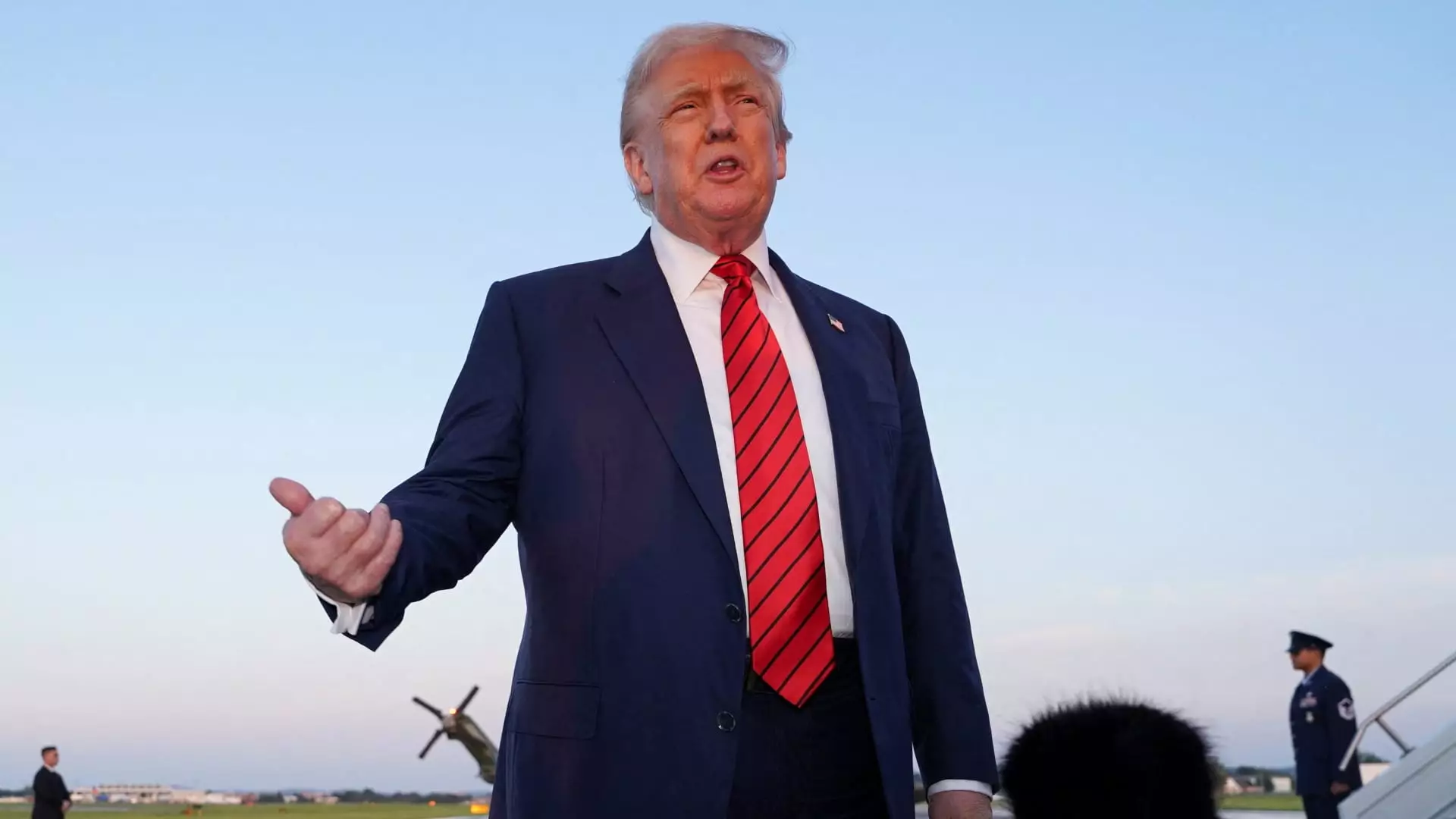The Trump administration’s push toward imposing astronomical tariffs—potentially reaching up to 250%—on imported pharmaceuticals is nothing short of a reckless gamble with America’s health. While the president claims these tariffs are designed to bring drug manufacturing back home, the reality is that such drastic measures threaten to destabilize an already fragile industry. The mere prospect of these steep tariffs signals a lack of nuanced understanding of global supply chains and the importance of affordable medicines. An act of economic sabotage disguised as patriotism, these threats risk turning the U.S. into a protectionist fortress that ultimately hurts consumers more than it helps.
What’s particularly troubling is the pattern of inconsistent policymaking. Trump has hinted at multiple tariff rates—200%, then 150%, then climbing back toward 250%—highlighting a tendency to bluff and shift with little regard for the ramifications. This indecisiveness injects chaos into a vital sector, discouraging investments and creating uncertainty that could permanently harm pharmaceutical innovation and supply stability. The industry’s warnings about price hikes and disrupted supply chains should serve as a wake-up call: this approach isn’t about safeguarding American interests but about playing political games that threaten health security.
National Security or Economic Pandering?
The pretext for these tariffs stems from a supposed concern over national security, rooted in the Section 232 investigation. Yet, the idea that medicine imports compromise U.S. security is inherently flawed. Genuine security depends on reliable, accessible medications—not on high tariffs that make drugs more expensive domestically. The Trump administration’s invocation of national security as justification conveniently masks a broader political strategy: leverage economic nationalism to appeal to a base that values protectionism over pragmatism.
Moreover, this trade tactic overlooks the interconnected global pharmaceutical ecosystem that has evolved over decades. Many essential medicines and active ingredients are imported precisely because manufacturing costs are lower abroad. Imposing tariffs may reduce dependency on foreign countries, but it risks inflating drug prices and squeezing out U.S. innovation capacity—contradicting the very security it claims to protect. These policies seem less about safeguarding citizens and more about scoring political points, a shortsighted move that jeopardizes future healthcare stability.
The Human Cost Behind the Policy Spectacle
At the heart of this debate are real Americans—patients, families, and vulnerable populations—who stand to suffer from the fallout. Rising drug prices driven by tariffs will hit those with the lowest incomes the hardest, further widening existing health disparities. For decades, the pharmaceutical industry has been a vital engine of R&D, delivering groundbreaking cures and treatments. Yet, the Trump administration’s strategies risk choking off innovation by discouraging investment and complicating production logistics.
Meanwhile, drugmakers are caught in a web of conflicting directives—from tariffs to aggressive demands to lower prices—creating an environment where long-term planning is impossible. The executive order to tie U.S. drug prices to foreign lower rates exemplifies this contradiction: a principled stance on affordability hampered by a harmful protectionist approach. While the administration claims these policies will make medicine more affordable, history suggests otherwise. Cost reductions achieved internationally are unlikely to translate into real savings domestically amid looming tariff-induced cost hikes.
The Broader Political and Ethical Implications
From a liberal perspective rooted in fairness and responsibility, these policies reflect a troubling shift away from rational governance toward impulsive nationalism. Instead of fostering a competitive, innovative industry that benefits all Americans, the Trump administration appears intent on quick political wins—tariffs that threaten to raise prices and disrupt access.
The repeated threats and policy reversals illustrate a lack of coherent strategy and a dangerous willingness to gamble with public health for temporary political gains. This approach disregards the ethical obligation to provide affordable, reliable healthcare and instead prioritizes consolidating power through divisive, protectionist rhetoric. The pharmaceutical industry’s warnings about potential chaos and increased costs should challenge policymakers to reconsider their reckless tactics. Healthcare is not a bargaining chip; it’s a fundamental human right, yet these policies threaten to turn it into a casualty of political theater.


Leave a Reply